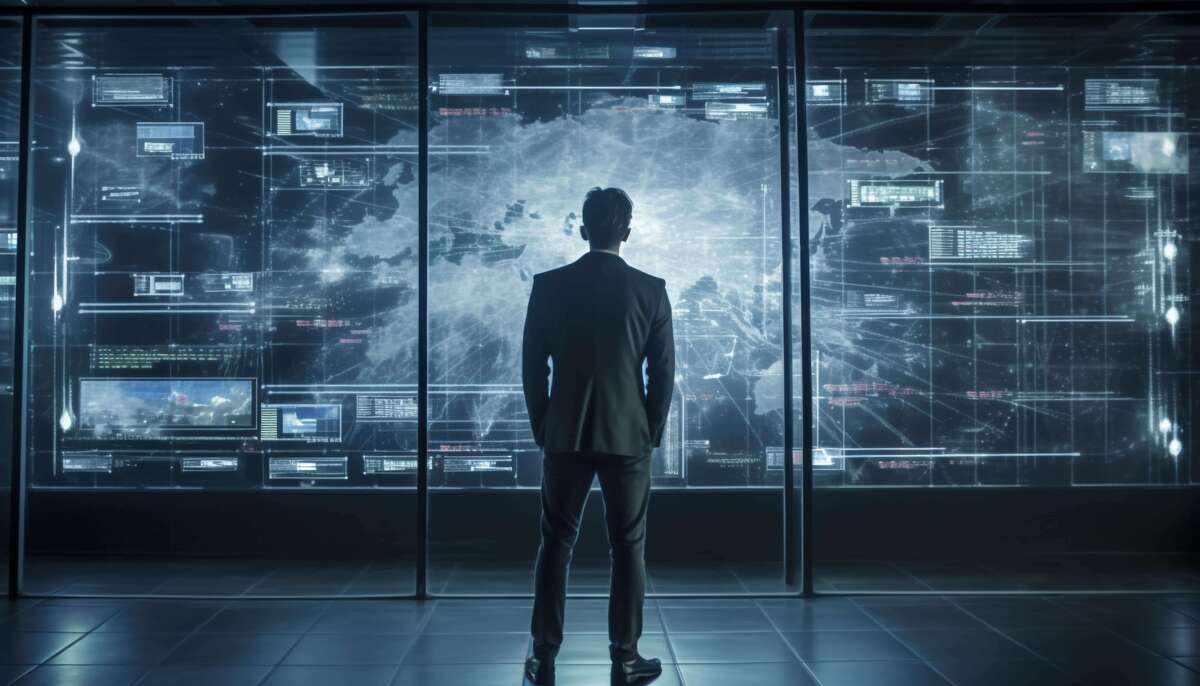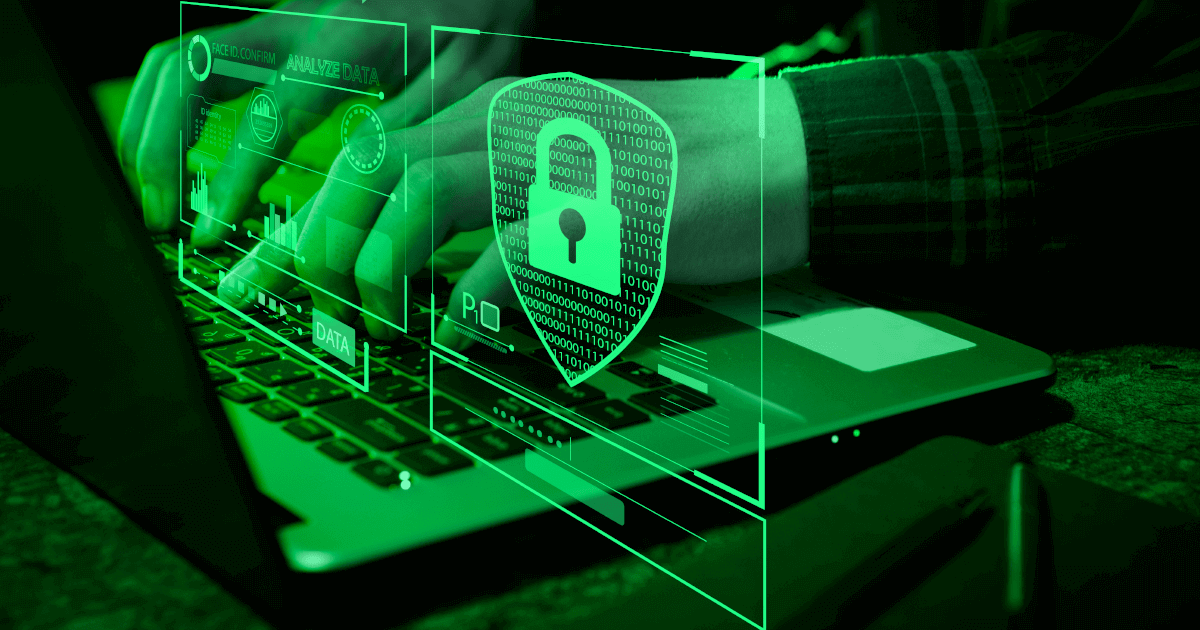Industry 4.0 represents a period where digitalization and automation converge, transforming the business world with technological advancements. This transformation not only makes production processes more efficient but also introduces new challenges in terms of cybersecurity. The digital transformation brought by Industry 4.0 requires businesses and industries to review and strengthen their cybersecurity measures.
The proliferation of new technologies such as the Internet of Things (IoT) increases the connectivity of industrial systems to the internet, creating new threats from cyber-attacks. This situation makes industrial facilities and infrastructure more vulnerable from a cybersecurity perspective. Additionally, the emergence of new threats such as AI-supported attacks and zero-day attacks implies that traditional security measures may be inadequate.
In this context, it is necessary to adopt new approaches such as AI-supported security solutions, blockchain technology, and education/awareness strategies to be prepared for the cybersecurity challenges of Industry 4.0 and to effectively defend against these new threats. In this article, we will comprehensively address the cybersecurity challenges of Industry 4.0 and the various strategies developed to cope with these challenges. Through this, we aim to help businesses and industries minimize cybersecurity risks by adapting to this digital era.
Industry 4.0’s Digital Transformation: Cybersecurity Challenges
Industry 4.0 is revolutionizing production processes through the integration of technologies such as automation, data exchange, cloud computing, the Internet of Things (IoT), and artificial intelligence. However, this digital transformation also brings serious cybersecurity risks.
The digital transformation of Industry 4.0 means that devices and systems in manufacturing facilities become connected to the internet. This situation makes industrial facilities more vulnerable to cyber-attacks. One of the cybersecurity challenges is the protection of industrial control systems (ICS) and IoT devices. These devices often run on outdated and unpatched software, potentially harboring security vulnerabilities.
Furthermore, the collection and analysis of large amounts of production data present new challenges in data privacy and integrity. Cyber attackers could disrupt production processes or halt facility operations by gaining access to this data. Therefore, industrial facilities need to take significant steps to ensure the security of their data.
Finally, the use of technologies such as artificial intelligence and machine learning in industrial applications enables cyber attackers to conduct more sophisticated attacks. This necessitates continuous updating and improvement of the cybersecurity defense systems of facilities.
The digital transformation of Industry 4.0 brings new and complex challenges in the field of cybersecurity. To overcome these challenges, industrial facilities need to establish robust cybersecurity policies, continuously monitor and update security vulnerabilities, and collaborate and share information with stakeholders to provide more effective defense against cyber-attacks.
Internet of Things and Cyber Security: New Threats of Industry 4.0
The digital transformation brought by Industry 4.0 has a significant impact on the Internet of Things (IoT) domain. The Internet of Things enables industrial devices and equipment to become connected to the internet, enhancing operational efficiency while also introducing cybersecurity vulnerabilities. This situation gives rise to new threats of Industry 4.0.
The Internet of Things facilitates communication between industrial devices and central systems, optimizing production processes. However, these devices often have limited security measures, making them potential targets for cyber attackers. This necessitates a review and reinforcement of cybersecurity strategies for industrial facilities.
Alongside the Internet of Things, continuous data collection by industrial devices and equipment in facilities requires secure storage and processing of this data. Cyber attackers could manipulate production processes or disrupt facility operations by gaining access to this data. Therefore, industrial facilities need to take serious steps to ensure data security and continuously update their security measures.
Furthermore, the remote accessibility of industrial devices in facilities, facilitated by the Internet of Things, creates a new attack vector for cyber attackers. This necessitates careful consideration of remote access security, including robust identity authentication and authorization systems.
While the Internet of Things brings numerous benefits as part of Industry 4.0, it also introduces new cybersecurity threats. Industrial facilities must be proactive in addressing these threats and implementing strong cybersecurity measures to succeed in the digital transformation process. Therefore, Industry 4.0 needs to adopt a proactive approach to the security challenges in the Internet of Things domain.
Artificial Intelligence-supported Cyber Security Solutions: the Future of Industry 4.0
The digital transformation brought about by Industry 4.0 has greatly accelerated the development of artificial intelligence-supported cyber security solutions. Artificial intelligence has become a crucial tool for strengthening and preventing cyber attacks in industrial facilities. This indicates that artificial intelligence-supported cyber security solutions will play a critical role in the future of Industry 4.0.
Artificial intelligence has the capability to rapidly process large datasets to detect and analyze cyber threats in industrial facilities. This enables real-time detection of emerging cyber attacks and swift intervention. Additionally, artificial intelligence can analyze complex patterns of cyber attacks to anticipate future threats and take preventive measures accordingly.
Artificial intelligence-supported cyber security solutions can continuously monitor security vulnerabilities in industrial facilities and automatically implement updates. This ensures that the facilities’ cyber security levels are consistently maintained at the highest standard. Furthermore, artificial intelligence can react more rapidly and effectively to cyber attacks, helping minimize the damage caused by such attacks.
These solutions will enable cyber security to be managed in a smarter and more effective manner in the future of Industry 4.0. They will make industrial facilities more resilient against cyber attacks and ensure uninterrupted production processes. Additionally, artificial intelligence-supported cyber security solutions will enhance the competitive advantage of industrial facilities, allowing them to take safer steps in the digital transformation process.
In conclusion, artificial intelligence-supported cyber security solutions will become a fundamental element of cyber security in the future of Industry 4.0. These solutions will enable industrial facilities to be better prepared for cyber attacks and take safer steps in the digital transformation process.

Cloud Computing and Industry 4.0: Data Security Strategies
With the rapid spread of Industry 4.0, cloud computing is revolutionizing industrial facilities’ methods of data storage, processing, and access. However, this digital transformation also brings new challenges in terms of data security. At the intersection of cloud computing and Industry 4.0, data security strategies become of paramount importance.
Cloud computing enables industrial facilities to meet their data storage and processing needs in a more flexible and scalable manner. However, storing this data in the cloud can make it a potential target for cyber attackers. Therefore, industrial facilities need to collaborate closely with cloud service providers to develop comprehensive data security strategies.
Data security strategies should involve encrypting data stored in the cloud, tightly managing access controls, and protecting it with security firewalls. Additionally, data backup and disaster recovery plans should be integral parts of these strategies. This way, industrial facilities can swiftly recover from data loss or cyber attacks.
At the convergence of cloud computing and Industry 4.0, the data security strategies of industrial facilities should encompass not only technical measures but also personnel training and awareness. Strong password usage, compliance with security policies, and raising awareness about social engineering attacks among employees are critical for the successful implementation of data security strategies.
In conclusion, in this era where cloud computing and Industry 4.0 converge, the data security strategies of industrial facilities should take a comprehensive approach, addressing both technological and human factors. These strategies will help keep the facilities’ data secure, ensuring uninterrupted production processes and successful digital transformation.
Protection of Cyber-Physical Systems
The digital transformation brought by Industry 4.0 has made the protection of cyber-physical systems in manufacturing facilities even more crucial. Among the security priorities of Industry 4.0, the protection of cyber-physical systems plays a key role in ensuring operational continuity and enhancing production efficiency. In this context, the protection of cyber-physical systems emerges as a fundamental security element of Industry 4.0.
The protection of cyber-physical systems encompasses safeguarding physical components in industrial facilities such as automation systems, robotic systems, sensors, and data collection devices against cyber attacks. Protecting these systems is of critical importance in ensuring operational continuity and production efficiency. The protection of cyber-physical systems requires the integration of cybersecurity measures with physical systems.
Within the framework of the security priorities of Industry 4.0, strengthening the cybersecurity infrastructure of facilities, utilizing security firewalls, security software, and cyber threat detection systems are of great importance for the protection of cyber-physical systems. Additionally, continuous training of the cybersecurity teams in facilities for the protection of cyber-physical systems and readiness against current threats is also necessary.
The protection of cyber-physical systems holds a strategic position among the security priorities of Industry 4.0. Therefore, industrial facilities need to pay serious attention to the protection of cyber-physical systems and continuously update security measures. This way, they can safely leverage the technological innovations brought by Industry 4.0.
Blockchain Technology and Industry 4.0 Security Applications
The digital transformation brought by Industry 4.0 has also introduced the use of blockchain technology in security applications. Blockchain, with its decentralized, transparent, and immutable structure, is a groundbreaking technology in terms of data security. Among the security applications of Industry 4.0, the use of blockchain technology plays a significant role in ensuring data integrity, protection against cyber attacks, and secure data sharing.
Blockchain technology plays a critical role in ensuring data integrity in the security applications of Industry 4.0. Thanks to its distributed ledger structure, altering or deleting data becomes nearly impossible, significantly enhancing data security. Particularly in industrial facilities, blockchain technology holds great potential for the security of production data, supply chain information, and other critical data.
Furthermore, blockchain technology emerges as an effective tool in protecting against cyber attacks in the security applications of Industry 4.0. Its decentralized nature prevents data manipulation and fraud, creating a stronger defense mechanism against cyber attacks. This helps industrial facilities reduce their cybersecurity risks.
In conclusion, blockchain technology plays a significant role in the security applications of Industry 4.0. Its use in areas such as ensuring data integrity, protection against cyber attacks, and secure data sharing helps strengthen the digital security of industrial facilities. Therefore, focusing on blockchain technology is of great importance for facilities aiming to effectively combat security challenges brought by Industry 4.0.
The Future Cybersecurity Experts: Adapting to Industry 4.0
The rapidly evolving digital ecosystem of Industry 4.0 demands new skills and competencies from cybersecurity experts. The future cybersecurity professionals will be those who can adapt to the technological innovations brought by Industry 4.0, think data-centrically, and remain prepared for the constantly changing threat landscape. In this context, there are some fundamental competencies that cybersecurity professionals adapting to Industry 4.0 should possess.
The future cybersecurity professionals should be able to understand the complex and interconnected nature of Industry 4.0 and develop security strategies tailored to this structure. Additionally, having knowledge in areas such as artificial intelligence, machine learning, and big data analytics will facilitate their adaptation to the technological innovations of Industry 4.0. Furthermore, it is crucial for cybersecurity professionals to be able to develop security strategies to enhance operational continuity and production efficiency in industrial facilities.
Cybersecurity professionals adapting to Industry 4.0 should not only possess technical knowledge but also communication skills, problem-solving abilities, and leadership qualities. Professionals who can effectively communicate with different departments in industrial facilities, solve complex problems, and lead security teams will have a significant advantage in addressing the security challenges of Industry 4.0.
In conclusion, the future cybersecurity professionals will be those who can adapt to the digital transformation brought by Industry 4.0 and possess both technical and human competencies. Therefore, it is of great importance for cybersecurity professionals to continuously improve themselves, adapt to new technologies, and remain prepared for the changing threat landscape in order to effectively manage the security measures of Industry 4.0 and make the most of the opportunities brought by digital transformation.



